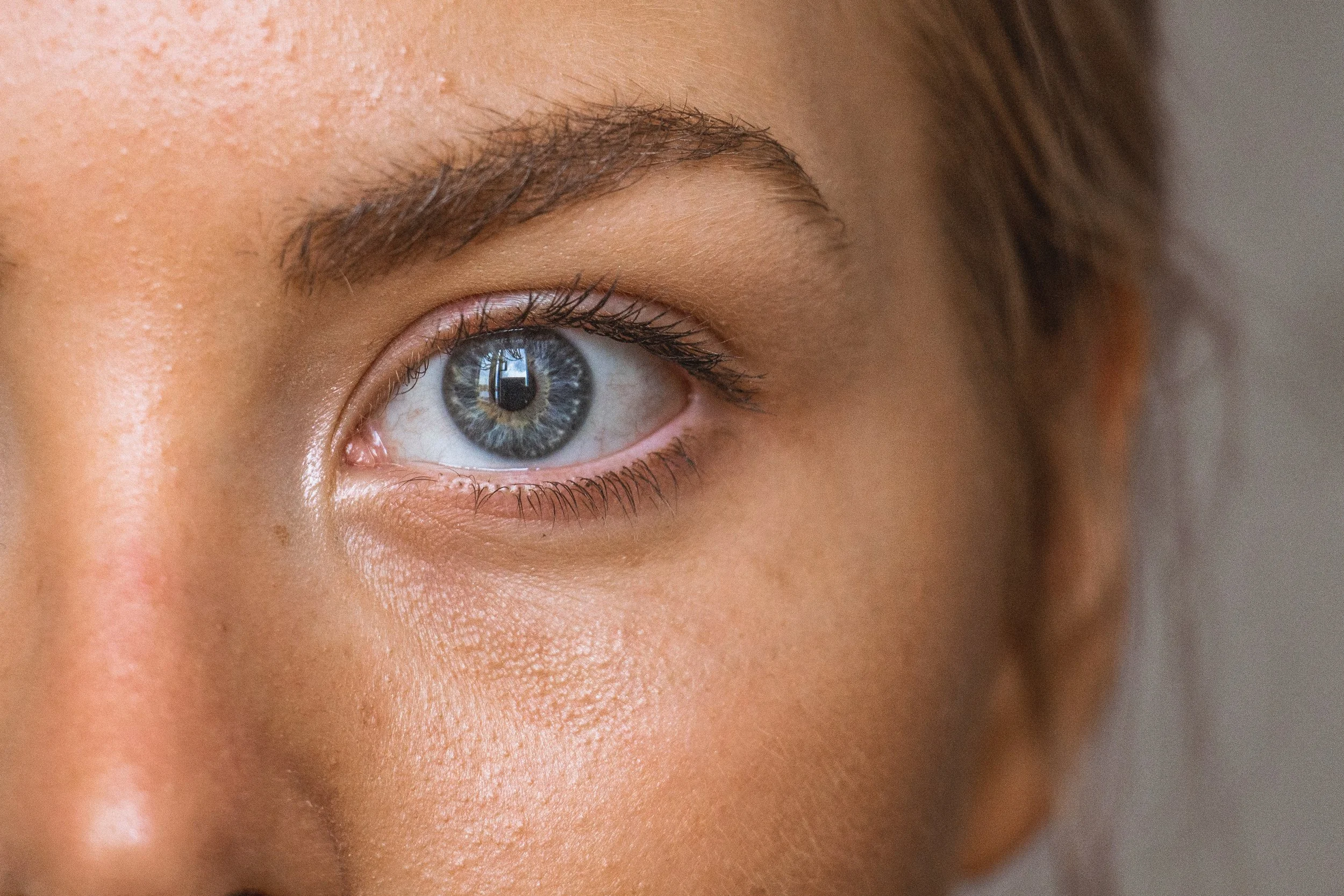“Skin Issues Sent my Confidence Into a Tailspin”
BY BETHANY HEITMAN
Like most red-blooded American women, I have faced my share of insecurities. But one thing I never felt self-conscious about? My skin. My teenage years weren’t plagued by bumps and blemishes. And as I have aged, wrinkles and dark spots have stayed away—at least for now. If I am being really honest, my clear complexion has always been a source of pride. When a coworker would tell me she wished she had my glowy skin, it would give me a little boost. And I loved it when makeup artists would tell me I didn’t even need foundation.
Photo by Amanda Dalbjörn
Perhaps it’s because I had never dealt with skin problems before that I was rocked to my core six months ago when my skin started to rebel. I woke up one day with red, puffy, hive-like blotches covering my face. They were itchy, raw and looked terrible. After far too long staring at myself in the mirror and distressing, I called a dermatologist and nabbed the first available appointment. What ensued was months of trying to get to the bottom of going on. The blotches would clear up, leaving behind ugly brown spots. Then, a few weeks later, those nasty red marks would return. Countless derm appointments later, it became clear that I needed to become a student of my skin.
Thankfully, through lots of trial and error, my skin is on the road to recovery—I even picked up some much needed complexion lessons along the way. Here, helpful facts and tips for anyone going through a skincare crisis.
Skin Issues Can Start at Any Age
But I’ve never had skin problems, I cried to my dermatologist the first time I saw her after these red blotches started popping up. She kindly told me that just because I never had them before, didn’t mean I was immune to them.
As we age, a variety of things can cause our skin to change. One of the biggest culprits? Hormones. For example, some women notice their skin becomes more sensitive when they’re pregnant, while others notice they suddenly start breaking out as they barrel towards menopause. Yup, hot flashes and pimples—fun.
What You Eat Matters
What’s good for you, is good for your skin. So, if you eat a diet filled with healthy fats, lots of fresh veggies and lean protein—your skin has a better chance of looking glowy and clear. Loading up on fried foods and sweets? You’ll likely notice more congestion in your pores and overall dullness.
But that’s not all. As I was navigating my complexion problems, my dermatologist told me to be careful with spicy foods. That’s because spicy foods often contain something called acidic lycopenes, which can cause irritation and disrupt the pH balance of your skin (this is what helps protect your skin from damage). Interestingly, when I cut out spicy foods my redness got a little better. It didn’t go away completely, but it certainly improved.
You May Need to Reconsider Your Skincare Products
Maybe you got excited and started using several new beauty products at once and don’t know which one causes your skin to freak out. Or maybe, like me, you’ve been using the same stuff for years when it suddenly starts causing problems.
Both of these scenarios are frustrating, but there is a solution for both—in fact it’s the same solution for both. My dermatologist had me eliminate my entire routine. She told me to switch to a simple regime—just a face wash and a moisturizer. Oh, and she didn’t want me to use any old products. She told me to stick to either Vanicream or Cetaphil—both brands are loved by dermatologists because they’re gentle, effective and free of common skin allergens and irritants.
From there, to figure out any products that may be irritating to you, you’re advised to test them on the skin near your inner wrist. That skin is sensitive, so if there is anything in the products you use that you react poorly to, you’ll notice it by applying it to that area. Apply one product a day to that area and see how you react. If you don’t notice anything, you can then try it on your ace.
If your skin is freaking out, the tips above can help you make sense of what’s going on. However, your best bet is to partner with a dermatologist to figure things out. They have the training to be on the lookout for potential allergic reactions, hormonal problems and more.
Bethany Heitman, Contributor


